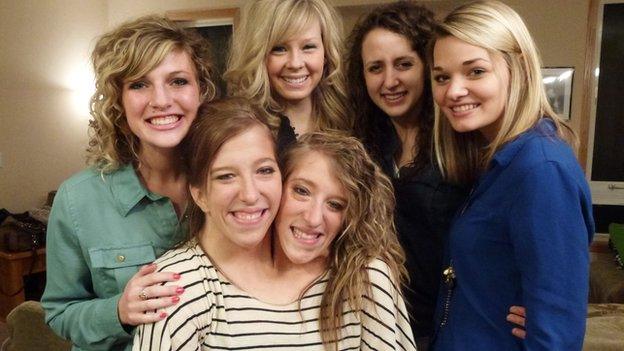Gaza conjoined twins 'need life-saving treatment abroad'
- Published
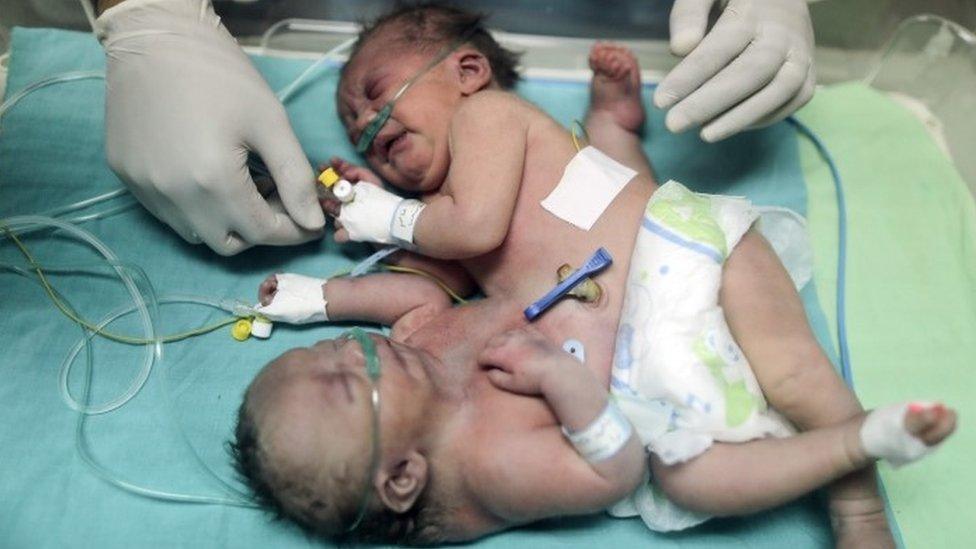
Medics say one of the baby girls is weaker than her sibling
The lives of a pair of Palestinian conjoined twins are at risk unless they are able to leave Gaza, doctors say.
Shifa Hospital's Alam Abu Hamda said the "complicated condition" of the baby girls could not be dealt with by medics in the coastal territory, which is under blockade by Israel and Egypt.
He said the hope was they could be transferred abroad for separation.
The girls are joined at the abdomen and lower body. Born on Saturday, one is reported to be weaker than the other.
The twins have one shared leg but separate hearts and lungs. Conjoined twins that share key organs generally have lower chances of survival.
"Their lives are in danger, it's a complicated case," Dr Abu Hamda was quoted by The Times of Israel as saying, external.
He said that while the condition of one of the twins was "ok", her sibling was suffering and required ventilation.
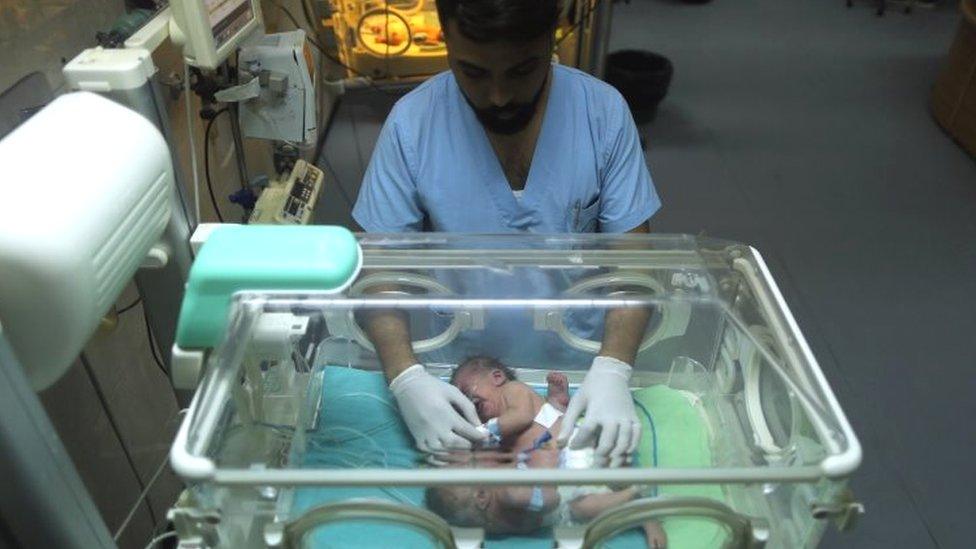
The girls urgently need to be transferred abroad for treatment, medics say
"The quicker they are transferred abroad, the better their chances are to be saved," he said.
The Israeli military body responsible for co-ordinating access to and from Gaza, Cogat, said it had not received any request for the twins to exit the territory.
Dr Abu Hamda said options for treatment included Israel, the US or Saudi Arabia.
Conjoined twins born in November 2016 in Gaza later died.
Israel and Egypt have maintained a land and sea blockade on Gaza for a decade in an attempt to prevent attacks by militants based there.
The restrictions, repeated cycles of armed conflict, Palestinian political divisions and budget cuts have led to a serious deterioration in the availability and quality of health services in the territory, according to the UN, external.
Severe power shortages earlier this year forced, external hospitals to postpone elective surgeries, discharge patients prematurely, and reduce cleaning of medical facilities.
- Published15 October 2017

- Published14 October 2016
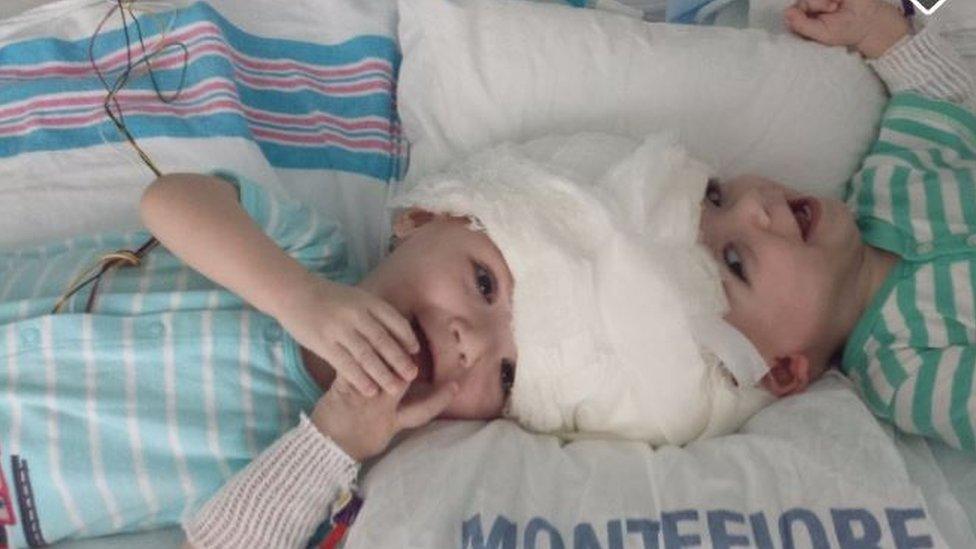
- Published24 August 2016
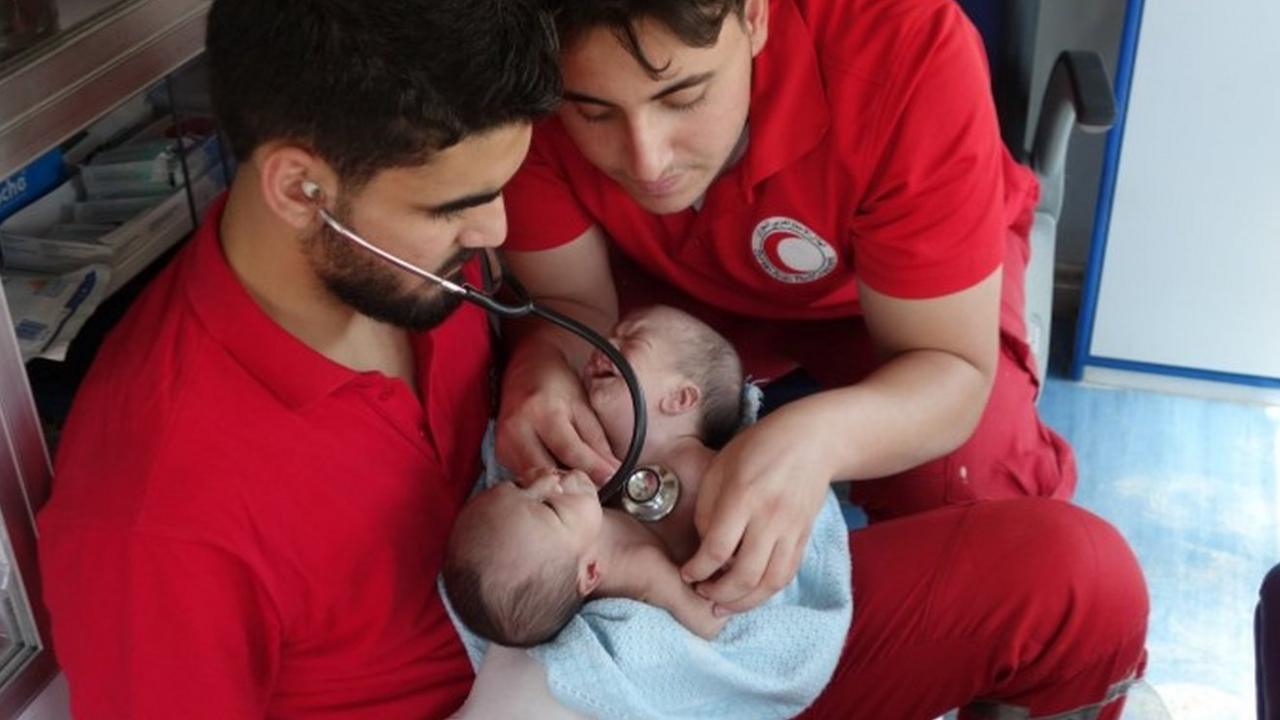
- Published30 August 2016

- Published25 April 2013
